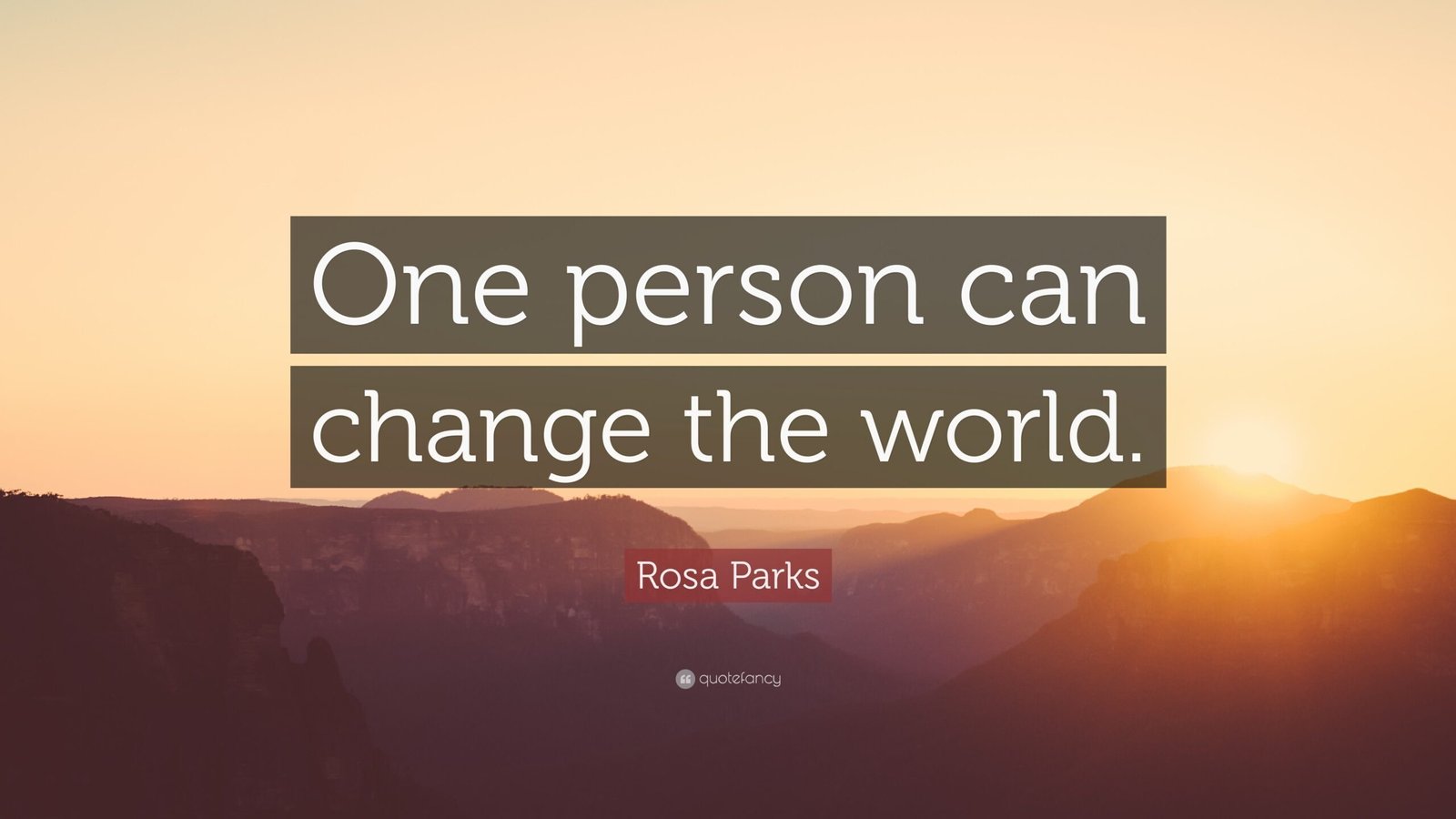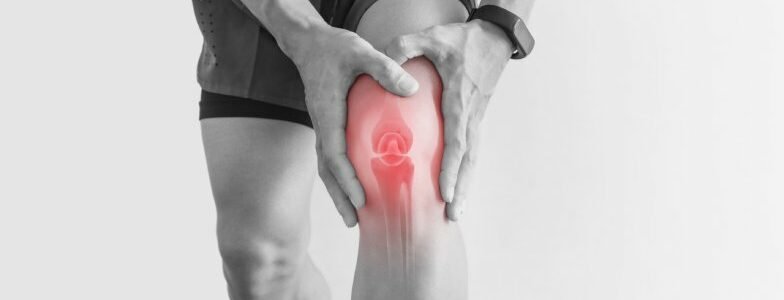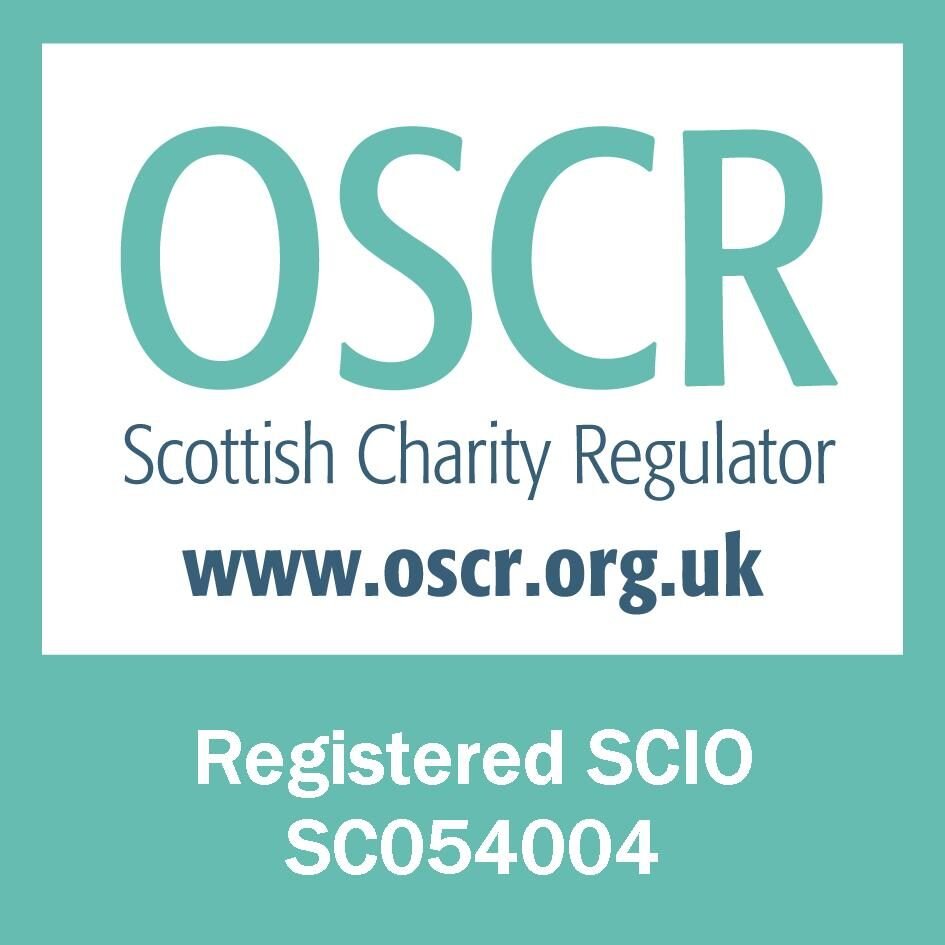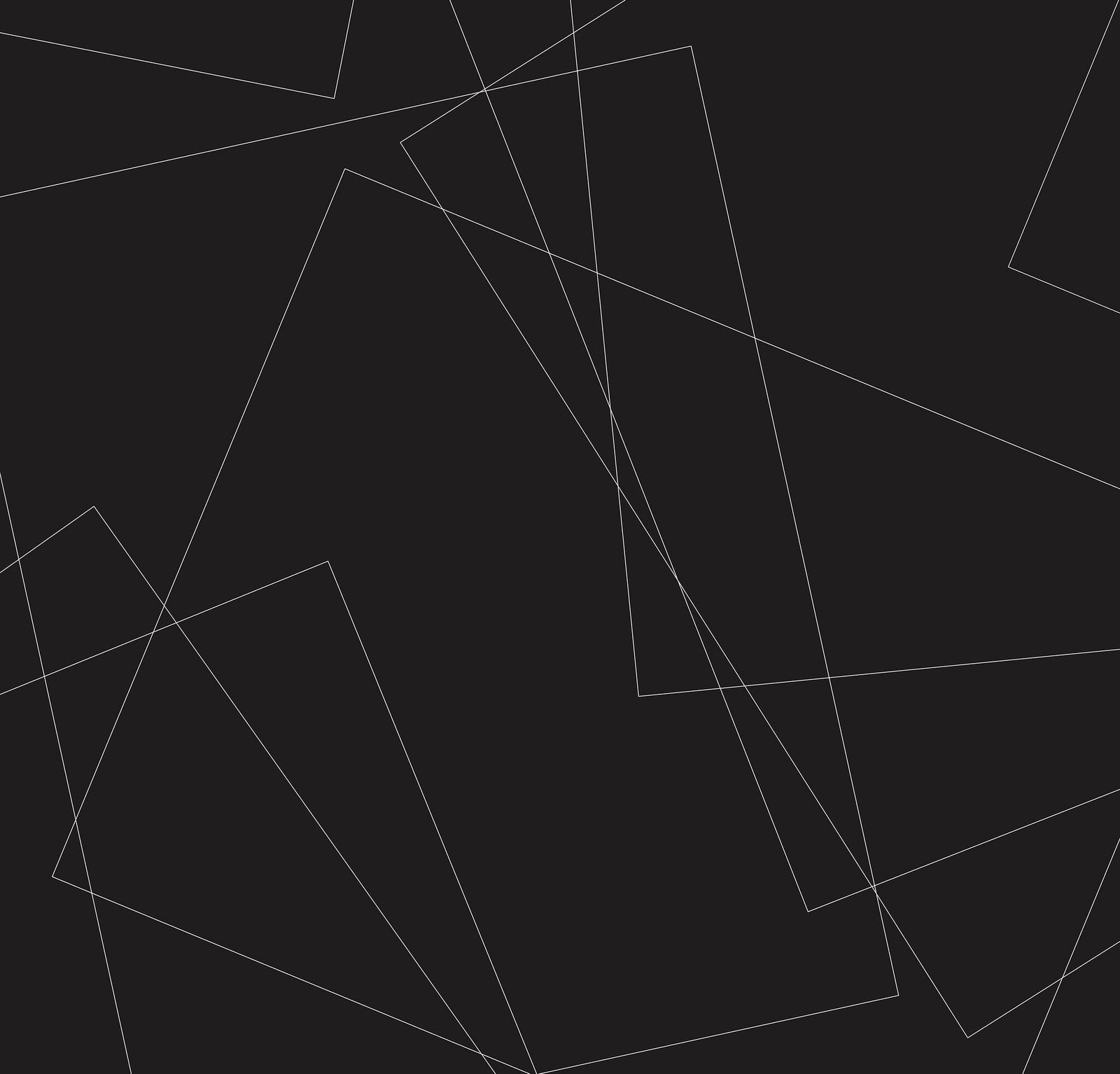Working towards a sustainable future for all those included
This Ramadan, Goodwill Movement has been working on plans towards a sustainable future for all. The upcoming articles would reflect that. However, just a thought—what can we as individuals learn about people with disabilities?
Breaking Barriers: Creating an Inclusive Society for People with Disabilities
In today’s world, inclusivity is more than just a buzzword—it is a necessity. As we strive to build a society where everyone has equal opportunities, it is essential to recognize and address the challenges faced by people with disabilities. The Gilgit Baltistan Goodwill Movement is committed to fostering awareness, support, and action to ensure that individuals with disabilities are empowered to live with dignity and independence.
Understanding Disability: A Diverse Experience
Disability is not a singular experience; it encompasses a wide range of conditions, including physical, sensory, intellectual, and mental health disabilities. Every individual’s experience is unique, and recognizing this diversity is the first step toward creating an inclusive society.
Moving Beyond Stereotypes: Focus on Abilities
One of the biggest misconceptions about disability is that it defines a person’s entire identity. In reality, people with disabilities have talents, ambitions, and contributions to make, just like everyone else. Instead of focusing on what they cannot do, we should celebrate their achievements and strengths.
Addressing Societal Barriers
More often than not, it is not the disability itself that limits individuals but the societal barriers that prevent full participation. Lack of accessible infrastructure, limited educational opportunities, and workplace discrimination create unnecessary obstacles. Removing these barriers through better policies, adaptive technologies, and public awareness can make a significant difference.
The Power of Language: Respect and Dignity
Words matter. Using respectful language—such as “person with a disability” rather than “disabled person” (unless preferred by the individual)—helps reinforce dignity and respect. Listening to people with disabilities and learning how they prefer to be identified ensures inclusivity in communication.
Inclusion Benefits Everyone
An inclusive society is beneficial for all. When we design workplaces, schools, and public spaces with accessibility in mind, we create a world that accommodates diverse needs. Accessibility is not just about compliance; it is about making sure that everyone has the opportunity to contribute meaningfully.
Taking Action: How You Can Help
- Advocate for Accessibility: Support policies and initiatives that promote physical and digital accessibility.
- Educate Yourself and Others: Awareness is key. Engage with stories and experiences shared by people with disabilities.
- Support Inclusive Workplaces: Encourage businesses and organizations to hire and accommodate employees with disabilities.
- Promote Community Engagement: Ensure that social and cultural events are designed to include everyone.
The Role of the Gilgit Baltistan Goodwill Movement
The Gilgit Baltistan Goodwill Movement is committed to supporting individuals with disabilities by advocating for inclusive policies, providing resources, and raising awareness. Together, we can break down barriers and create a world where every person, regardless of ability, can thrive.
Join us in our mission to promote dignity, respect, and inclusivity for all!
The need to have a normative discussion – Disabled people in the world
The Imperative of Inclusion: Disability Rights and Social Integration
The Imperative of Inclusion: Disability Rights and Social Integration
For years, the Gilgit Baltistan Goodwill Movement (GBGM) has remained neutral in explicitly advocating for disability rights. However, neutrality does not mean inaction. Too many have failed to prioritize the needs of disabled individuals, perpetuating a cycle of exclusion. Even immigrants, who have benefited from new opportunities abroad, have also failed to see beyond their struggles and advocate for those left behind. Inclusion is not simply a moral obligation; it is a fundamental human right and a necessary step toward a more equitable and prosperous society.
Understanding Disability Beyond Charity
Historically, disability has often been viewed through a lens of charity rather than rights. This outdated perspective, reinforced by personal indifference and societal apathy, has led to attitudes that treat disabled individuals as burdens rather than equal participants in society. While some individuals offer charitable support, this alone does not address the systemic barriers preventing disabled individuals from fully participating in society. True inclusion requires a shift from passive sympathy to active engagement, ensuring that disabled individuals have equal opportunities in education, employment, healthcare, and public life.
Economic and Social Contributions Ignored by Individuals
Disabled individuals are not just recipients of assistance; they are valuable contributors to the economy and society. Yet, due to the unwillingness of many to recognize their potential, they are often denied opportunities to prove their worth. When provided with accessible infrastructure and inclusive policies, they can thrive in various professional fields. However, individuals—including employers, educators, and community members—continue to ignore this fact, choosing instead to exclude them from the workforce and social life. Even immigrants, despite having firsthand experience of overcoming barriers, have often failed to recognize the struggles of disabled individuals in their home communities and advocate for meaningful change. Those who choose not to engage in inclusive practices are not only denying disabled individuals their rights but are also weakening their own societies.
Legal and Ethical Responsibilities Ignored by Individuals
Disability rights are human rights, yet many individuals fail to acknowledge their personal responsibility in advocating for and supporting disabled individuals. In regions like Gilgit-Baltistan, a lack of personal commitment has contributed to inaccessible infrastructure, inadequate healthcare, and limited educational opportunities for disabled individuals. The failure to act is not due to a lack of resources but rather a lack of willingness to prioritize inclusion. Even those who have been exposed to more inclusive societies, such as members of the diaspora, frequently neglect to apply these principles in their own communities.
The Role of Individuals in Change
Every individual has the ability—and the responsibility—to create a more inclusive society. Ignoring disability rights is an active choice that contributes to continued exclusion. People must challenge their own biases, advocate for accessibility in their communities, and provide direct support where needed. Those who remain passive in the face of exclusion are complicit in maintaining an unjust status quo. GBGM, as a movement dedicated to goodwill and social welfare, has a role to play in encouraging individuals to take personal responsibility for advocating and acting in support of disability inclusion.
The Importance of Individual Donations
Achieving true disability inclusion requires financial support, and individual donations play a crucial role in ensuring that disabled people receive the services and opportunities they are entitled to.
These funds help provide essential services such as assistive technologies, accessible infrastructure, vocational training, and healthcare. Individuals who choose to contribute directly empower disabled individuals to lead dignified and independent lives. Philanthropy, when undertaken by individuals with a genuine commitment to change, can be a powerful force in addressing exclusion and creating a fairer society.
During Ramadan, your generosity can make a significant difference. Donate here to support disabled individuals and help drive meaningful change.
Practical Steps Individuals Can Take Toward Inclusion
To move beyond rhetoric, individuals must take concrete actions to integrate disabled people into society. These steps include:
- Personal Advocacy: Speaking out against exclusion and encouraging inclusive policies in workplaces, schools, and communities.
- Education and Awareness: Challenging personal biases and promoting disability awareness in daily interactions.
- Accessible Spaces: Ensuring homes, businesses, and public spaces are designed with accessibility in mind.
- Economic Inclusion: Supporting disabled entrepreneurs, hiring disabled employees, and advocating for fair hiring practices.
- Community Engagement: Volunteering time, skills, and financial resources to support disabled individuals.
- Donations and Direct Support: Providing financial contributions to organizations that advocate for disability rights and assist disabled individuals directly.
Conclusion
The inclusion of disabled individuals is not an optional act of goodwill but an essential aspect of a just and progressive society. Individuals have played a significant role in the continued marginalization of disabled people, and their inaction can no longer be tolerated. GBGM has the opportunity to encourage personal responsibility and integrate disability rights into its broader mission of social welfare. By embracing this shift, individuals can ensure that no member of society is left behind and take direct action to create a more inclusive and equitable future.
Nature and the disabled
God’s System, Nature, and the Inclusion of Disabled People
Nature is a masterpiece of diversity. From the towering mountains to the tiniest grains of sand, from creatures that roam the earth to those that dwell in the deepest seas—everything in nature has a place and a purpose. In this grand system, there is no concept of exclusion; no being is seen as lesser. It is only human perception, shaped by arrogance and ignorance, that creates hierarchies where none exist.
Disability, like everything else in nature, is not an error—it is simply a variation, a different expression of life. Yet, human societies, rather than embracing this natural diversity, have created artificial barriers that exclude disabled individuals. This exclusion is not a reflection of religious texts—it is a distortion, a result of human-made oppression. Ableism, the belief that disabled individuals are inferior or less valuable, is not natural; it is a deception, a work of the Satan that seeks to divide and diminish the sacred unity of life.
Nature’s Balance and Human Disruptions
If we observe nature, we see that it does not reject difference—it thrives on it. Forests grow stronger because of their diversity; ecosystems sustain themselves by balancing different elements. A tree with twisted branches still provides shade, a bird with a broken wing still sings, and a river that changes its course still nourishes the land. Nature adapts, embraces, and finds purpose in every form of life.
So why do humans struggle to do the same? Why do we build societies that exclude rather than accommodate?
It is because human beings, in their arrogance, have created false ideals—of perfection, strength, and independence—that do not exist in nature. We have been deceived into believing that productivity defines worth, that those who move differently, think differently, or experience the world differently are somehow “less.” This belief is not from God; it is a construct of human ego and a tool of oppression.
Disabled People: A Natural and Essential Part of Society
Just as every plant, animal, and element in nature plays a role, so do disabled people in society. Their presence challenges rigid systems, encourages innovation, and teaches the values of interdependence and compassion. The assumption that disabled individuals are weak or dependent ignores a fundamental truth—we are all interdependent. The strongest tree still relies on the soil, the mightiest lion still depends on its pride, and the most powerful human being is still dependent on the love and care of others.
To exclude disabled people is to go against the very laws of nature and the divine order. It is an act of arrogance that leads only to imbalance and injustice. A just society does not discard those who are different; it recognizes their place, values their contributions, and ensures that every individual has the opportunity to thrive.
Returning to the Natural Order
If we truly wish to align ourselves with God’s system, we must unlearn the false ideas imposed by ableism. We must recognize that disability is not a deviation from nature—it is a part of it. Instead of creating barriers, we must create bridges. Instead of isolating, we must embrace. Instead of seeing disability as a limitation, we must see it as another way of existing, just as natural and valid as any other.
Nature does not reject difference. Neither does the deity of God. The question is: will we?

The essence of training a disabled person

A Chance to Thrive, Not Just Survive
In many parts of the Global South, persons with disabilities (PWDs) face daily struggles—not because of their abilities, but because of the lack of opportunities. Yet, when given the right support, they prove time and again that they are innovators, entrepreneurs, and leaders.
This Ramadan, GB Goodwill Movement is committed to breaking these barriers by providing vocational training and employment support to PWDs. Your donation can change a life—giving someone the skills, confidence, and dignity to stand on their own.
Proven Impact: Why Training Matters
- Employment & Economic Independence: In Bangladesh, 60% of PWDs who received vocational training found jobs, with 74% reporting improved livelihoods for their families. In India, the Sarthak Educational Trust has placed 23,450+ disabled individuals into stable careers.
- Better Quality of Life: A study in South Asia found that 92% of trained PWDs experienced greater social acceptance, leading to more confidence and opportunities.
- Shifting Mindsets: Initiatives like Vicky Roy’s “Everyone is Good at Something” challenge stereotypes, proving that PWDs are capable, talented, and ready to contribute to society.
Our Goal: $7,000 to Change Lives
This Ramadan, your Zakat, Sadaqah, or general donation can help us reach our target of $7,000, which will:
✅ Fund vocational training programs for disabled individuals
✅ Provide assistive tools to help them work and thrive
✅ Support job placement and entrepreneurship opportunities
Every $10, $50, or $100 brings someone closer to a future of dignity and independence.
📢 Donate today and join this movement for change. Together, we can create a world where everyone has the chance to succeed.
🔗 [Ramadan 2025]
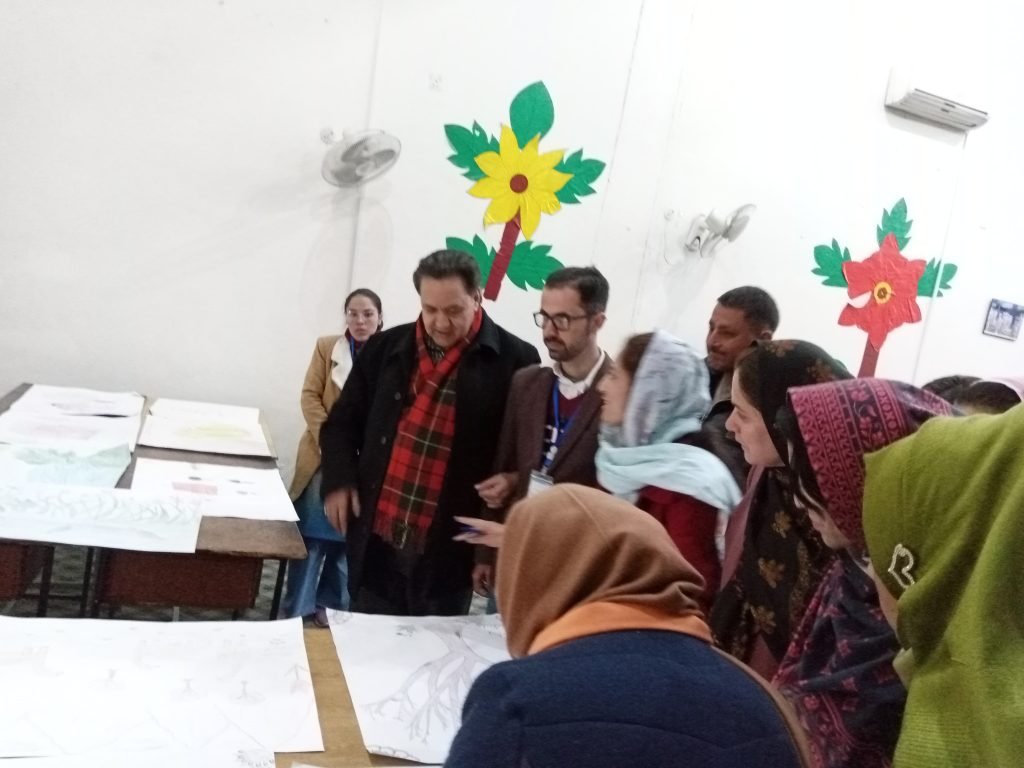
Every penny matters helps disabled people
Goodwill Movement Ramadan Appeal: Every Penny Matters
Ramadan has arrived, bringing with it a time of reflection, compassion, and generosity. It is a month where giving holds even greater significance, and at Goodwill Movement, we believe that no act of kindness is too small—because every penny matters.
Why Every Penny Matters?
Many people hesitate to donate, thinking their small contributions won’t make an impact. But the truth is, small drops make an ocean. When combined, even the smallest donations can bring relief, hope, and transformation to those in need.
- A little goes a long way – A modest contribution can cover school expenses, provide medical support, or help someone start a small livelihood initiative.
- Community-powered change – When many people contribute what they can, we create a sustainable impact together.
- Consistent giving, lasting impact – Even a small daily or weekly donation during Ramadan can add up to life-changing support.
Who Will Your Donations Help?
Your generous contributions to the Goodwill Movement Ramadan Appeal will support:
✅ Medical assistance – Covering essential treatments and medicines for those in need.
✅ Education – Supporting students with school fees, books, and learning resources.
✅ Livelihoods – Helping individuals gain skills or small business support to become self-sufficient.
✅ Basic necessities – Providing food and essential supplies to vulnerable families.
Join Us in Giving
This Ramadan, be a part of something greater. No matter how big or small your contribution, know that every penny you give carries the power to change a life.
✨ Give what you can. Make a difference today
May your generosity bring countless blessings this Ramadan and beyond. #EveryPennyMatters
The Forgotten Pain

Ramadan is more than hunger and thirst. It is more than the ritual of abstaining from food and drink from dawn to dusk. While fasting has been practiced for millennia—across civilizations, religions, and cultures—Ramadan carries a deeper essence for Muslims. It is a time of reflection, self-purification, and, above all, truth.
Yet, truth is not always comfortable. It is not always easy. In our communities, we often find ways to sidestep it, to veil it in pleasantries, or to ignore it altogether. But Ramadan calls us to something higher. It reminds us that fasting is not just about the body but also about the soul—about cleansing our intentions, confronting our shortcomings, and speaking with honesty even when it is difficult.
Truth in Speech and Action
The Prophet Muhammad (peace be upon him) taught that fasting is incomplete without guarding one’s tongue from falsehood, slander, and harmful speech. Yet, how often do we see silence in the face of injustice? How often do we turn a blind eye to the struggles of the vulnerable—the poor, the disabled, the oppressed—because it is easier than speaking out?
Fasting from food is simple; fasting from dishonesty, hypocrisy, and indifference is far harder. Ramadan demands that we examine not just what we consume but also what we say, what we do, and what we ignore. It demands that we speak the truth, even when it is uncomfortable.
Beyond Ritual: The Purpose of Fasting
Every civilization has known fasting in some form. Ancient Egyptians fasted in reverence to their gods. Greeks fasted for purification. Hindus, Buddhists, and Jews all observe fasts as acts of devotion. Islam, too, commands fasting—but with an emphasis on inner transformation.
The Qur’an states:
“O you who have believed, fasting has been prescribed for you as it was prescribed for those before you, so that you may attain taqwa (God-consciousness).” (Qur’an 2:183)
If fasting is meant to bring us closer to God, then surely it must bring us closer to truth as well. What good is an empty stomach if the heart is full of deceit? What good is abstaining from food if we do not abstain from injustice?
The Forgotten Pain
Once we were strangers, weary and worn,
Crossing the seas, through nights forlorn.
We sought refuge, a place to stand,
In lands that offered a helping hand.
Once we knew hunger, once we knew cold,
The weight of injustice, stories untold.
Yet now in comfort, we turn away,
From those in shadows, left to fray.
The disabled cry, yet who will hear?
Their struggles met with hollow cheer.
Do our prayers rise while they still weep?
Can we find peace while sorrow runs deep?
Do we not recall, in distant lands,
How weakness trembled in trembling hands?
How doors were shut and roads were steep,
How voices cracked, too hurt to speak?
Once, our feet were shackled tight,
By poverty’s chain, by endless plight.
We knocked on doors, we begged for aid,
Now, do we leave the weak betrayed?
The blind, the broken, those cast aside,
Their pain remains, though ours has dried.
Shall we forget the mercy shown,
And let their suffering turn to stone?
O you who walked the path of pain,
How can you now let it remain?
The weak, the weary—do not ignore,
For mercy fades when hearts go sore.
Shall we live in peace while they endure,
A world unkind, a fate unsure?
No, rise once more with hands that heal,
For faith is love, and love is real.
For what is faith, if not to care?
To lift the burden, to stand and share.
Let us not rest while one still cries,
For justice sleeps when kindness dies.
The Courage to Speak, the Will to Act
In our communities, silence is often mistaken for peace. We avoid speaking difficult truths out of fear—fear of judgment, fear of confrontation, fear of change. But Ramadan is not a month of fear. It is a month of courage, of standing firm in righteousness, of breaking not just our fasts at sunset but breaking the cycles of dishonesty and complacency that hold us back.
Truth is not always grand; sometimes, it is as simple as acknowledging our own faults. It is as simple as listening to those we have ignored, supporting those who suffer, and standing up for justice even when it is inconvenient.
So this Ramadan, let us fast in the fullest sense—not just from food and drink, but from falsehood and silence. Let us embrace truth, speak it with sincerity, and live by it with conviction. For a fast without truth is only hunger, but a fast with truth is transformation.
Impact of Education – Registering Goodwill International
Goodwill International SCIO: Empowering Disabled Communities in Scotland and Gilgit-Baltistan
Goodwill International SCIO, a Scottish Charitable Incorporated Organisation (SCIO), stands as a beacon of hope for diverse communities, promoting multiculturalism, inclusion, and integration across borders. The charity’s mission focuses on empowering underserved regions such as Gilgit-Baltistan, while ensuring that disabled individuals—across all cultural, ethnic, and geographical boundaries—are fully included and have equal access to opportunities and services. As part of its growth, Goodwill International SCIO is also committed to working within Scotland, alongside its efforts internationally.
Scotland: A Land of Opportunity and Unity
Scotland has long been known for its inclusive environment and rich cultural diversity. With a history of welcoming immigrants and people from varied cultural backgrounds, it is the perfect setting for organizations like Goodwill International SCIO to thrive. Scotland’s emphasis on equality, social justice, and community empowerment provides a strong foundation for initiatives that aim to support people in both local and international contexts.
However, the journey to inclusion is not just about ethnic and cultural diversity—it is also about including individuals with disabilities in every aspect of society. Scotland is home to a growing disability rights movement, and Goodwill International SCIO is committed to ensuring that its work reaches disabled individuals, who often face additional barriers to full participation in community and society. The charity’s focus on inclusion guarantees that people with disabilities—whether in Scotland, Gilgit-Baltistan, or other regions—are not left behind but are part of the development process.
Gilgit-Baltistan: A Region in Need of Support
Gilgit-Baltistan, nestled in the northernmost part of Pakistan, is a stunning region rich in natural beauty and cultural diversity. Yet, it remains one of the least developed areas, facing challenges such as limited access to infrastructure, healthcare, and education. Disabled individuals in this area, particularly those in rural or marginalized communities, often face compounded obstacles due to both geographic isolation and societal stigmas.
Goodwill International SCIO recognizes that sustainable development in Gilgit-Baltistan cannot ignore the needs of people with disabilities. The organization works to ensure that disabled individuals have access to healthcare, education, and other essential services, while advocating for their rights and integration into the wider community. By offering specialized support for disabled individuals, Goodwill International SCIO is helping to build an environment where all members of society, regardless of ability, can thrive.
South Asians in the UK: A Case Study of Community Integration and Empowerment
The South Asian community in the UK is diverse, vibrant, and has made significant contributions to British society. However, people from this background—like other minority groups—have often faced challenges in areas such as education, employment, and social mobility. For disabled South Asians, these challenges are often compounded by both cultural misunderstandings and a lack of accessible resources.
Goodwill International SCIO’s initiatives target not only South Asians in the UK but also ensure that disabled individuals from this community have access to equal opportunities. The charity advocates for improved accessibility in public spaces, educational institutions, and workplaces. It works to raise awareness about the intersection of disability and cultural identity, recognizing that disabled people from minority backgrounds may face unique challenges related to both their ethnicity and their disability.
For example, providing accessible healthcare and support for disabled South Asians ensures that they are included in community life, which is critical to promoting full participation in society. Goodwill International SCIO works to break down barriers, ensuring that cultural and disability-related needs are met simultaneously.
A Focus on Inclusivity
Goodwill International SCIO is committed to inclusive development, ensuring that no one is left behind. The organization actively works with individuals from all backgrounds and abilities, fostering an environment where diversity is celebrated. This focus on inclusivity means that disabled individuals, whether in Gilgit-Baltistan or within Scotland’s multicultural landscape, have equal access to opportunities that promote social, economic, and cultural integration.
This commitment goes beyond simply addressing physical barriers. Goodwill International SCIO advocates for a societal shift where disabled individuals are seen as equal participants, whether they are contributing to the local economy, attending school, or participating in cultural activities. Through education, awareness campaigns, and community-based projects, the organization ensures that disabled individuals are integrated into every level of community life.
Integration: Ensuring a Two-Way Process
Integration is a key principle of Goodwill International SCIO’s work. Integration goes beyond mere coexistence—it involves actively ensuring that individuals from all backgrounds, including those with disabilities, can participate fully in society. This requires both support for disabled individuals to overcome barriers and a broader societal commitment to welcoming and adapting to diverse communities.
In Scotland, for example, Goodwill International SCIO advocates for a society where disabled individuals from minority and immigrant communities, such as South Asians, are not excluded or isolated. Similarly, in Gilgit-Baltistan, integration efforts are focused on making sure that disabled individuals are not left out of educational or healthcare advancements. By fostering a culture of mutual respect and understanding, the charity helps create stronger communities that benefit everyone, regardless of disability or cultural background.
Conclusion: A Vision for an Inclusive and Multicultural World
Goodwill International SCIO’s work exemplifies the intersection of multiculturalism, inclusion, and disability rights. By ensuring that people from all cultures and abilities have access to resources and opportunities, the charity fosters stronger, more cohesive communities. Whether in the mountainous regions of Gilgit-Baltistan, within Scotland’s multicultural landscape, or in the lives of disabled individuals from South Asian backgrounds, the principles of inclusivity and integration guide the organization’s work.
The future of a truly inclusive society lies in recognizing that all individuals, regardless of their background or ability, should have equal opportunities to contribute and participate. By supporting disabled individuals alongside all others, Goodwill International SCIO is helping to create a more connected, inclusive world—where everyone, regardless of their circumstances, is valued and supported.
“Does the Global North Systematically Oppress Disabled Individuals in the Global South?”
International Development Lens
The Lens of Disability Development can be interpreted in multiple ways, and the unseen stories shared here represent just one dimension of this perspective. These narratives challenge conventional understandings of progress, inclusion, and agency, particularly within the framework of disability studies. However, the very notion of “development” itself is often constructed through a Western, if not explicitly Eurocentric, lens—one shaped by historical contexts, colonial legacies, and dominant economic paradigms that prioritize market-driven growth, institutional governance, and standardized policy interventions.
Institutional Frameworks and the Limits of Western Development Models
Taking Douglas North’s perspective on development, he emphasizes the role of institutions—both formal (laws, regulations) and informal (social norms, cultural beliefs)—in shaping economic and social progress. North’s analysis suggests that development is an evolutionary process, where institutions reduce uncertainty, create incentives, and guide the trajectory of societies. However, applying this framework to disability development raises critical questions:
- Whose institutions dictate what “development” looks like for persons with disabilities? Many international development policies assume a universal trajectory of progress, yet disability rights and accessibility vary significantly across cultures and economic systems.
- How do informal norms—such as societal perceptions of disability—interact with formal policies to either enable or hinder inclusion? While legal frameworks may enforce accessibility rights, social stigmas often persist, limiting real-world implementation.
- Can a development model rooted in Western economics thoughtfully capture the lived realities of people with disabilities in diverse cultural and socio-economic contexts? A model focused on GDP growth and institutional efficiency may overlook community-led, indigenous, or localized approaches to disability inclusion.
These questions highlight the need for a more inclusive, intersectional, and globally nuanced approach to development—one that transcends Western-centric assumptions and recognizes the agency of disabled individuals in shaping their own futures.
Western Agency and Congitive Dissoance
The assumption that Western nations—such as Canada, the United States, and much of Europe—have an inherent sense of civic leadership, governance, and humanitarian responsibility, while non-Western societies lack such capacities, leads to a distorted perception of global development. This perspective has roots in colonial ideology, where Western nations positioned themselves as “civilizing forces,” tasked with modernizing the so-called “developing world.”
Historians and politicians often reference the saying that “the Sun never sets on the British Empire” to underscore the vast reach and influence of Western colonial power. However, this legacy continues to shape international development today—through foreign aid, economic interventions, and policy frameworks that often prioritize Western models of governance over indigenous, communal, or non-Western systems.
For individuals who have emigrated from the Global South to Western nations, this creates a cognitive dissonance—a tension between the idealized narrative of Western progress and the lived reality of systemic inequalities, racial biases, and policy failures. While Western nations may champion disability rights and social inclusion rhetorically, the practical challenges—such as inaccessible healthcare, employment discrimination, and social exclusion—highlight the gap between policy and lived experience.
Thus, re-examining the international development lens requires moving beyond the idea that Western nations are the sole arbiters of progress. Instead, a pluralistic approach—one that values local knowledge systems, lived experiences, and non-Western traditions of social welfare—must be at the forefront of rethinking disability development and international development as a whole.

Who are we to judge?
In every city, near and far,
Live souls that shine like guiding stars.
Some may walk, some roll instead,
Yet dreams still dance within their heads.
Why shed tears in sorrow deep?
Why let pity steal your sleep?
Lift them up, help them grow,
Watch their talents brightly glow.
Teach with love, with kindness, share,
Show them that the world can care.
Don’t be lame, don’t just conform,
Blindly following societal norms.
See their strength, their will, their grace,
A world for all—our shared space.
So take their hands, don’t turn away,
Together, build a brighter day.
Hope through Goodwill – Gilgit Baltistan’s Manifesto
In his address to the Ismaili Jamat on Monday, His Highness the Aga Khan, Rahim Al Hussaini, underscored the significance of community development as a pillar of both individual well-being and global progress. He emphasized that sustainable development must be inclusive, ensuring that every individual, regardless of their circumstances, has the opportunity to contribute meaningfully to society.
The Gilgit-Baltistan Goodwill Movement (GBGM) remains deeply aligned with this vision and is steadfast in its mission to uplift and empower marginalized communities. Our commitment to social equity is rooted in the principles of inclusivity, dignity, and progress for all, particularly for disabled and differently abled individuals.
We firmly believe that accessibility and equal opportunities are fundamental human rights. Through our ongoing initiatives, we work to remove barriers—both physical and societal—that hinder full participation. By fostering an environment of understanding, support, and integration, we aim to empower individuals with disabilities to lead independent and fulfilling lives.
Our approach extends beyond advocacy; we actively implement programs that enhance accessibility in education, employment, and public spaces. We collaborate with local and international partners to drive policy changes, increase awareness, and create tangible solutions that improve quality of life.
At GBGM, we are dedicated to building a society where every individual, regardless of ability, religion, or gender, is recognized for their unique contributions. By working together, we can create a future that reflects the values of inclusion, compassion, and shared prosperity.


